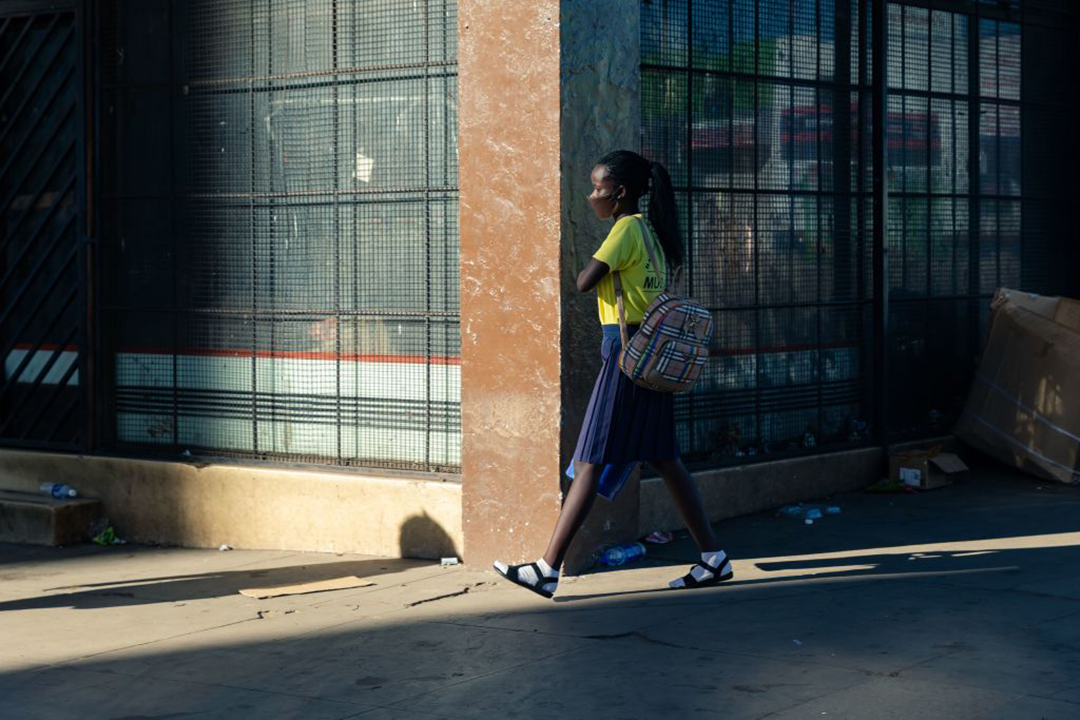Study: COVID-19 Recovery Plans Must Prioritize Needs of Youths
ADF STAFF
Young people have been among the hardest hit by the socioeconomic impacts of the COVID-19 pandemic, suffering education and training disruptions, losing sources of income, and dealing with food insecurity.
Of the estimated 1.4 billion people in Africa, more than 65% are younger than 35. The median age on the continent is 19.7 years.
Every year, about 10 million to 12 million African youths enter the workforce, but only 3 million formal jobs are created, according to the African Development Bank Group.
A recent study from the International Centre for Research on Women (ICRW) found that most Sub-Saharan governments have done little to support young people during the pandemic.
“But young Africans are not just victims of the interlocking crises exacerbated by COVID-19,” the report stated, “they are also key to mitigating them.”
The study titled, “Youth Inclusion in Covid-19 Economic Recovery Plans: A mapping and Analysis of National and Regional Processes in sub-Saharan Africa,” revealed that many young people struggle to find adequate employment while others have been lured into crime.
The ICRW reviewed the pandemic recovery plans and policies for Kenya, Nigeria, Rwanda and South Africa. It found that most did not address the needs of people between the ages of 15 and 35.
Dr. Chimaraoke Izugbara, director of Global Health, Youth and Development for ICRW Africa, was one of the authors.
“The continent’s leaders continue to pay lip service to the importance of young people as innovators, drivers of change and an indispensable part of the development equation,” he told ADF.
“Persons aged below 35 form the largest population group in most African contexts. Yet few African countries have a youth-focused economic development agenda.”
Another author, ICRW Africa Senior Associate Director Dr. Erick Yegon, said economic support policies were not designed with youth accessibility in mind.
Interviews conducted with 65 young stakeholders in the countries of focus showed that young people rarely were included in government dialogues meant to inform the determination of priorities and policies.
“They felt that their opinions were not sought or valued,” Yegon said in a statement. “They further cited lack of trust on government follow-through regarding their participation or access to recovery resources.”
The authors called for agencies to include accountability metrics, such as a minimum proportion of youth and female beneficiaries, as one recommendation for developing or implementing new COVID-19 relief measures.
Another recommendation was investment in distance-learning initiatives for those who do not already own computers and smartphones.
Young people “expressed strong optimism in the digital future as an avenue for youth employment,” the study noted. “However, they also reported that existing and emerging investments in the countries’ digital infrastructure are neither adequate nor responsive to their needs or the needs of other marginalized groups.”
Izugbara said higher education in Africa has much room for improvement.
“Universities continue to produce graduates with little skills and preparation for the new global economy,” he said. “High-value sectors, such as the creative industries, receive little national attention and investment.
“In some countries, university lecturers and teachers in other levels of education have to go on long strikes to get government to invest in the education sector.”
During a World Youth Skills Day event on July 15, International Labour Organization Deputy Director-General for Policy Martha Newton stressed the importance of digital skills to help young people adapt quickly to the rapidly changing work environment.
She called for high-quality internships and apprenticeships to equip the youth with “skills for life.”
“Be the change you want to be; be relentless, be bold,” she said via videoconference.
“We can’t transform efforts without you.”


Comments are closed.